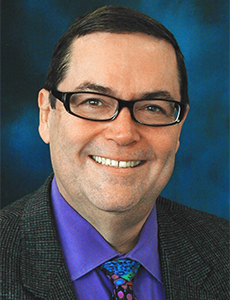Sponsored: EK Health Services
Preparing for the ’Green Wave’ of Medical Cannabis in Workers’ Comp Claims

It takes a true thought leader to be three years ahead of one of the most significant developments in an industry as complex as workers’ compensation.
Early in 2018, EK Health’s Chief Medical Officer and Medical Director Dr. Douglas Benner M.D., MS, F.A.C.O.E.M, was invited to participate in a national conference panel on the topic of medical cannabis in workers’ comp claims, specifically addressing the legislative landscape, state-specific legal developments/exposure, medical/claim implications, trends and the future impact on the workers’ comp industry.
To prepare, he conducted a crash review of what was scientifically known and accepted on the medical uses of the cannabis plant at the time.
In 2018, the topic was not yet on the radar for most companies in the managed care space, as only one or two states were requiring employers and workers’ compensation carriers to pay for medical cannabis. Today, medical cannabis has captured center stage in the workers’ compensation industry as more states move to legalize its use and more court cases have required paying for it.
The amount of clinical research being conducted is staggering.

Dr. Douglas Benner M.D., MS, F.A.C.O.E.M, Chief Medical Officer and Medical Director, EK Health
“If you look at the medical literature in PubMed, the research related to the cannabis plant and all of the different chemicals therein exceeds almost all the other categories of research,” said Dr. Benner.
“The discovery of the chemical parts of the plant were discovered in Israel by researchers there, so Israel has been doing tons of research, along with several other countries. When they found out what the chemical structure was, they looked at how it works. Then they found this entire system in our bodies, the endocannabinoid system. Six to seven hundred compounds in cannabis naturally connect with the endocannabinoid system in our bodies to modulate everything from the immune system to pain receptors to reproductive health and to everything in between.”
In researching the topic, Dr. Benner found the sheer volume of misinformation to be daunting, as everyone grasps for reliable information that increases their knowledge with tangible facts.
Dr. Benner shared that one of the things he learned was that medical cannabis really has nothing to do with recreational cannabis. In recreational usage, the doses are usually high and used for fun, whereas medical usage usually involves low doses and is highly targeted for certain medical conditions.
Dr. Benner felt he needed to know more about cannabis use as it pertains to workers’ comp, so he enrolled in a graduate course of study on medical cannabis. Here are a few of the key lessons he has learned and how they are helping to pave the way forward.
Industry Impact of Medical Cannabis
As Dr. Benner has answered cannabis-related questions in the pain management courses he teaches, and as he learns more about the scientific potential of this ancient plant, he has connected the impact that medical cannabis could have on workers’ comp claims.
Since then, the industry has seen a growing popularity of medical cannabis as a treatment for chronic pain, anxiety, inflammation and a host of other symptoms inherent to occupational injuries.
Managing the effects of a course of treatment that is still in the process of being legalized and regulated is one of the complexities that requires attention. For example, in some states, medical cannabis has been legalized, but there is no legal avenue to pay for it. Though doctors can recommend its use, it is still illegal to prescribe cannabis, as it is still illegal at the federal level. The topic is rife with complexities and contradictions.
“We’ve had a manmade form of synthetic THC [the main psychoactive component of the cannabis plant] in the form of Marinol (dronabinol) capsules, available as an FDA and DEA-approved drug since 1985 for nausea and vomiting related to chemotherapy,” Dr. Benner said. “Now we have two other synthetic THC-type products that are FDA and DEA approved drugs. And yet the U.S. considers THC illegal if it comes from the plant.”
In 2018, the FDA and DEA did approve the first drug isolated from the cannabis plant. The drug, known as Epidiolex, contains one of the non-psychoactive components of the plant (CBD/cannabidiol) and is approved for treating a few serious seizure disorders in children.
As more medical providers have embraced medical cannabis, the industry has scrambled to iron out all of the legal and logistical wrinkles. Though much progress has been made, there is so much more to learn. Protocols and procedures to formalize and regulate this course of treatment will be needed, as well as continued clinical research.
“I just led a curriculum with our nurse case managers that included a survey before and after the program. It was dramatic how much their knowledgebase increased. They’re going to have patients across the country who are taking recreational or medical cannabis. It is important they know that CBD has a direct interaction with many anti-seizure medications as well as anti-coagulants, and it can alter the blood levels of those drugs, which could be dangerous. For patients with liver problems, CBD’s enzyme activity can aggravate and cause liver problems. In the course, we covered adverse effects as well as what’s scientifically available in the literature to be accepted by medical science as acceptable use of cannabis,” said Dr. Benner.
Thought Leadership and Expertise
Why did an established medical doctor and industry expert, with a myriad of accolades to his credit, enroll in a graduate course of study on medical cannabis? As Dr. Benner shared, “I want to do more informed education wherever I can, and this was a natural next step.”
In his quest to expand his knowledge and learn something of key relevance to the industry, he had the foresight to initiate this area of expertise in 2019 by enrolling in the first graduate degree program in the U.S. devoted to this topic. Dr. Benner and his classmates have the distinction of being the first class to complete the program.
Though he had already established a prestigious career as a medical doctor, speaker, educator, Chief Medical Officer and medical director, Dr. Benner chose to continue his education even further. In May 2021, he earned his Master of Science in Medical Cannabis Science and Therapeutics from the University of Maryland School of Pharmacy, where he completed a rigorous two-year course of study that included a variety of topics related to pharmacology with a focus on medical cannabis. Dr. Benner’s graduate coursework included topics on medical cannabis’ historical and cultural context, the chemistry/pharmacology of its design and delivery, drug actions/interactions, clinical effects, cannabis genomics and pharmacognosy, and state/federal cannabis laws and policies.
A highlight of his graduate work was the opportunity to learn directly from some of the earliest and most influential pioneers in the medical cannabis industry.
For example, one of the program sessions at the University of Maryland was conducted by Dr. Raphael Mechoulam, an Israeli organic chemist and professor of medicinal chemistry at the Hebrew University of Jerusalem, who discovered THC and then discovered the molecular structure of CBD. Dr. Mechoulam’s discoveries opened up the world of clinical research that has given rise to the modern age of medical cannabis.
Another key speaker at the University was Dr. Mahmoud ElSohly, who runs the U.S. government’s cannabis farm and research center at Ole Miss University, the oldest and only government-approved facility for growing cannabis used in clinical research.
In completing this intensive course of study, Dr. Benner graduated with high honors. Based on academic excellence, he earned membership in the University of Maryland, Baltimore Campus’ chapter of The Honor Society of Phi Kappa Phi, the nation’s oldest and most selective honor society for all academic disciplines, as well as the Rho Chi Honor Society of the University of Maryland School of Pharmacy, an organization that recognizes intellectual leaders in pharmacology who achieve scholastic achievements with the highest ethical standards.
Real World Application
With this knowledge under his belt, Dr. Benner is working hard to apply cannabis lessons learned to all aspects of the workers’ comp space.
“I’m continuing to learn, signing up for seminars, and following multiple journals so I can keep up with the literature. I want to provide more informed education wherever I can,” he said.
Armed with this new degree and a wealth of knowledge, Dr. Benner is abundantly qualified to educate employees, physicians, clients and colleagues in the industry on state-of-the-art interventions for occupational illnesses and injuries. In an industry roaring with voices claiming expertise in this emerging treatment, Dr. Benner stands head and shoulders above. His academic and occupational expertise have uniquely informed him to responsibly and thoroughly educate others on this timely topic.
It seems medical cannabis is here to stay, as more and more states and territories legalize its use. By staying ahead of the curve as a subject matter expert and educator, Dr. Benner is powerfully equipping the entities in our industry to prepare for the “green wave” of medical cannabis.
To learn more, watch for Dr. Benner’s educational sessions at an industry conference, or visit ekhealth.com.
About EK Health Services, Inc.
As a leading national managed care company specializing in workers’ compensation, EK Health Services, Inc. sets the gold standard for medical case management, utilization review, medical bill review, network management, and Medicare Set-Asides. We provide the best people, processes, and technology to facilitate expedient, quality and cost-efficient medical treatment for workers’ compensation claims. Learn more about EK Health’s solutions at www.ekhealth.com.
The views and opinions expressed in this article are those of the interviewees and do not necessarily reflect the official policy or position of EK Health Services, Inc.
This article was produced by the R&I Brand Studio, a unit of the advertising department of Risk & Insurance, in collaboration with EK Health Services, Inc. The editorial staff of Risk & Insurance had no role in its preparation.










